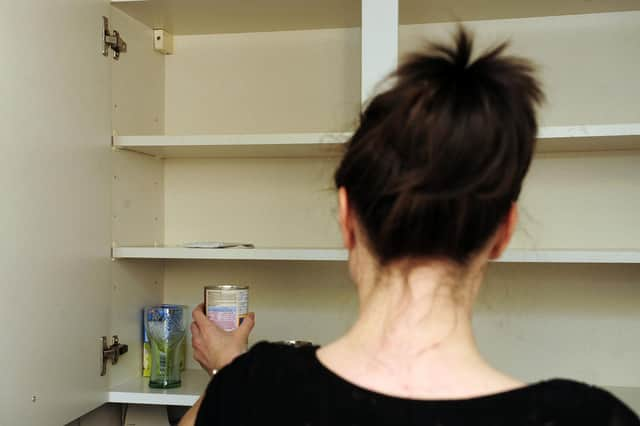Coronavirus pandemic 'has aggravated food poverty' as emergency food aid sector ill-equipped to deal with surge


The University of the West of Scotland report, ‘Food insecurity in times of Covid-19 – an insight into a deepening crisis’, found three main factors have further aggravated food insecurity during the pandemic.
Rising levels of need driven mainly by income reductions; new and intensified food access challenges; and the effects of the lockdown on the operation of food banks and their important ‘wrap-around’ services, such as mental health support and benefit advice, have had a significant impact.
Advertisement
Hide AdAdvertisement
Hide AdThe report, produced as part of the UWS-Oxfam partnership, concludes that, despite the best efforts of food banks and other food aid providers, the pandemic has highlighted the emergency food aid sector was ill-equipped to deal with the surge in food insecurity created by Covid-19.
It says that without action to tackle the underlying drivers of the income crisis during the recovery from Covid-19, progress towards achieving the ‘Zero Hunger’ element of the United Nations Sustainable Development Goals by 2030 will be more challenging.
The research focused on four demographic groups identified as being most likely to be at higher risk of food insecurity, even in ‘normal times’: the homeless, young carers (someone aged under-18) and young adult carers (aged 16-25), people seeking asylum, and people with disabilities. The report is based on snapshot interviews with frontline support staff and a review of existing evidence.
Hartwig Pautz, Senior Lecturer in Social Sciences, and Damian Dempsey, PhD student from University of the West of Scotland, co-authored the report.
Commenting on the findings, Hartwig said: “This report notes the serious impact of the Covid-19 pandemic on the financial situation of already vulnerable and marginalised groups and on the access that these groups have had to food.
“The pandemic has meant that food insecurity became even worse for these groups, and also highlights how those working to mitigate and challenge food insecurity were affected by the pandemic – both food aid and the important ‘wrap-around’ services such as employment or mental health advice have often been lost.
"Our research has therefore emphasised the necessity of challenging the drivers that create food insecurity if the goal of ending hunger is to be achieved.”
Jamie Livingstone, Head of Oxfam Scotland, said: “Scottish politicians have known for years that foodbanks aren’t a sustainable answer to food insecurity; a fact that’s been clearly illustrated during the pandemic as they understandably struggled to meet surging demand for their services.
Advertisement
Hide AdAdvertisement
Hide Ad“The solution is not and has never been to simply give people charitable food to put on the table; it’s to make sure they have enough money to buy food themselves and that demands action to bolster the social safety net and to tackle in-work poverty.
“Ahead of May’s Scottish election, all parties must commit to publishing a plan by the end of 2021 which lays out exactly how they intend to end the scandal of hunger in Scotland and consign foodbanks to the history books once and for all.”